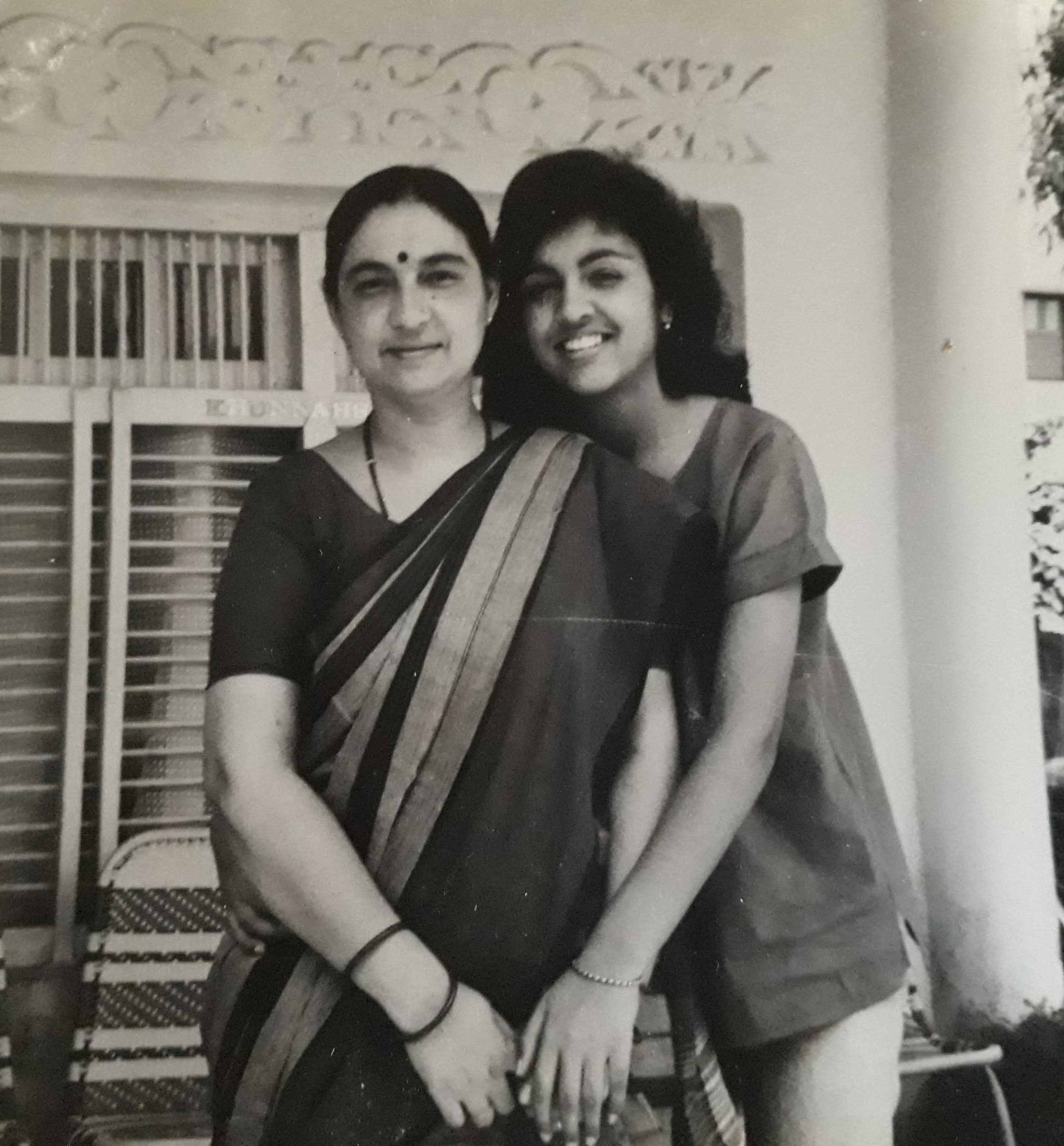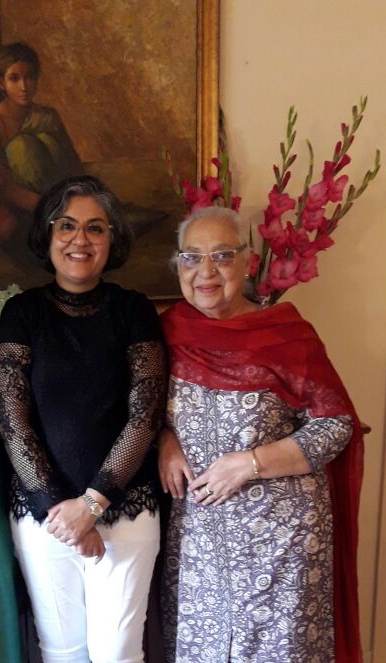Khatte aalo ki sabji or a potato stew which has been soured by dry mango powder, is a simple recipe which has its origins in the kitchens of Shivani’s grandparents. Its simple enough to make, boiled potatoes, sautéed in a bit of yogurt and spices and made into a stew by adding water.



Ever since my childhood, I’ve looked forward to the festival of Navratri. As a child I was not aware of the significance of the festival. It was the delicious food prepared by my mother during the festival that was the main appeal. Till date I don’t know why its called fasting. Most dishes are deep fried. Other dishes which include fruit, sabudana and vegetables are tasteful and full of flavour. The dishes I prepare today are mostly what my mother cooks. A few dishes I have learnt from neighbours and the extended family.
In my family we eat the ‘falhar’ or fasting food for the first seven days. On ‘Ahstmi’ or the eighth day, we do the pooja and have Sooji Halwa, Kale Chane and Puris for ‘parsad’.

Aloo or potato is one of the most important staple crops in India and is used widely all over India, in every regional cuisine. It can be eaten boiled, fried, sautéed, in gravys and is added in most vegetables to add bulk.
This nutrient-dense tuber is packed with a variety of vitamins, minerals and phytochemicals that ward off disease and benefit human health.
Many studies have suggested that increasing consumption of plant foods like potatoes decreases the risk of obesity and overall mortality, diabetes, heart disease and promotes a healthy complexion and hair, increased energy, overall lower weight.
This simple stew, which contains squashed boiled potatoes, tempered in a bit of clarified butter or ghee, with carom or ajwain seeds, red chilli powder, salt and dried mango powder, was made on an everyday basis in Shivani’s grandparents house. The house contained a large joint family of her grandfather, his brother, their children and the numerous grandchildren. Her grandmothers were very traditional. Invariably they were on some religious fast or the other every other day of the week.
Potatoes being a cheap vegetable were used in most meals to feed such a large family. Even though, potatoes were made so often, if you asked anybody what their favourite vegetable was, they would still say potato. According to her grandmothers, the tomato was a foreign vegetable, it was not native to India, and as such they would not incorporate that in their recipes. They used yogurt and dried mango pieces or in the powder form to sour their dishes.
My brother to date will eat mainly potatoes in all his meals and this specific stew is an all-time favourite of his. Similarly, my son has a liking for this stew and would often request in be made through his childhood.
Potatoes also contain a compound known as alpha-lipoic acid, which helps the body to convert glucose into energy. Thus, it is a good vegetable to eat during fasting, hence its inclusion in most meals during religious fasts in India.
Khatte Aaloo ki Sabji
Sour Potato Stew
Ingredients ~
3 medium potatoes
2 tbsp curd/yogurt
1/4 tsp ajwain/carom seeds
1/2 tsp red chilli powder
1/2 tsp salt
1 tsp ground amchur/dried mango powder
1 tbsp ghee/clarified butter
Method ~
1. Boil the potatoes.
2. Peel and roughly squash the boiled potatoes.
3. Heat a pan on the stove. Add a tablespoon of ghee.
4. In the hot ghee temper the ajwain seeds and red chilli powder, taking care not to let them burn.
5. Beat the curd and add it to the spices in the pan. Cook till the ghee seperates.
6. Take the crushed potatoes and add them to the pan. Cook till coated in the spice mixture.
7. Add the amchur powder to sour the gravy.
8. Add drinking water to cover the potato mixture and bring to a boil. Once it comes to a rolling boil, reduce the heat to simmer and partially cover the pan with a lid.
9. Adjust the seasoning to make the gravy a blend of salty, chilli and sour.
10. Once the gravy is thick remove from the stove.
~ Serve with Kuttu Roti, Kuttu Puri, Kuttu & Singhara Atta Pakora, Kuttu Paneer Pakora, Samak ke Chawal, Sabudana Khichri during the Navratri fast.

For more recipes of dishes cooked in my family during the Navratri festival, please read my post, Navratri Vrat Thali.
Most of the recipes are simple and quick to cook, yet are delicious.

